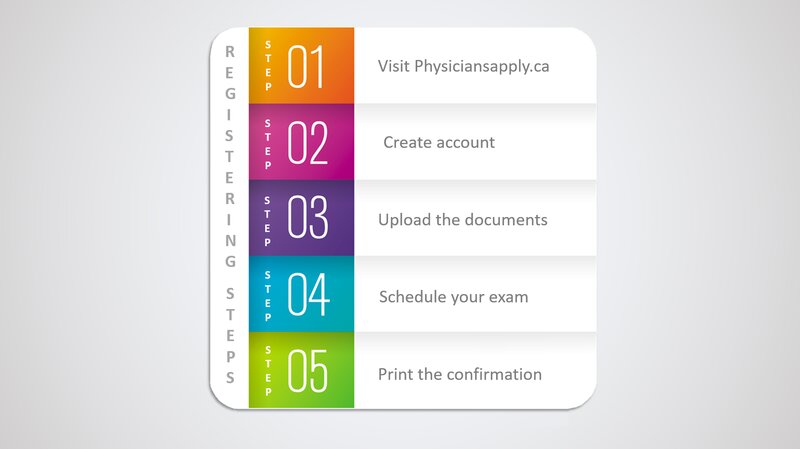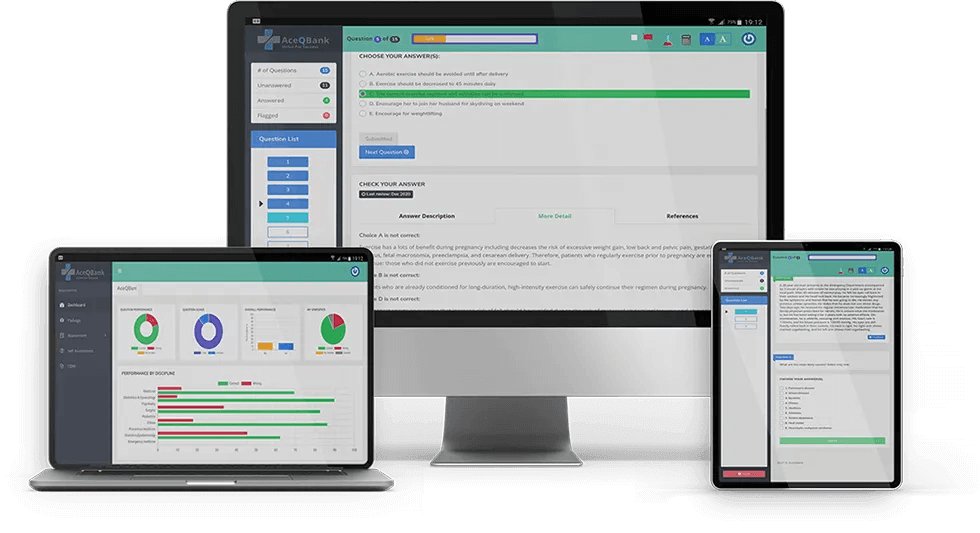Am I eligible for the MCCQE part 1 exam?

It is not uncommon for International Medical Graduates (IMG) to be unsure if they are eligible to sit the Medical Council of Canada Qualifying Examination (MCCQE) Part I missing out on the opportunity of living in a free, safe, and great country like Canada. The Medical Council of Canada (MCC) has specific criteria for who is eligible to take the exam. The MCC also has a few requirements for medical candidates who wish to take the Qualifying Examination Part I.
The MCCQE1 is a competency exam administered in both English and French. The exam evaluates the medical knowledge, skills, and abilities necessary to arrive at a logical clinical decision as well as apply medical knowledge to solve a clinical problem. The exam is not meant to test medical candidates on all known medical conditions and diseases; rather, it is designed to assess the clinical knowledge, skills, and abilities expected of licensed physicians in Canada.
The exam is challenging, but passing with the right preparation resources and strategy is possible. Without the proper resources and strategies, you may waste time and miss out on the opportunity to pass the MCCQE Part I on the first attempt with a high score.
This blog will list the requirements for the exam, explain how to register for it, and outline the exam format. We will also share a few tips on how to get ready and properly prepare for the exam, as well as delve into the best preparation source available for the MCCQE1 exam. You will be able to determine whether you are qualified to take the test after you have finished reading this blog and have a clear overview of MCCQE Part I.
Eligibility And Application Process For The MCCQE Part I Exam
The MCCQE Part I is one of the challenging steps in becoming a licensed physician in Canada. The exam is designed based on MCC objectives to assess the medical knowledge of a candidate. There are specific eligibility criteria for taking the exam. This includes completing a medical degree from an accredited university and holding a valid medical license. Candidates can register online for the exam after creating an account and satisfying the entry requirements.
Candidates will be able to schedule the exam once their application has been processed, which will occur once the application has been received. Now that you have some information about the MCCQE1, let’s go over the eligibility requirements and application process.

Who Is Eligible To Write The MCCQE Part I?
For several reasons, many international physicians would like to practice medicine in Canada and join the Canadian community. The first and most important reason is the quality of life. The fact that Canada is consistently ranked high among the safest countries in the world makes it an excellent destination for families with young children, particularly experienced physicians who simply want a better future for their children.
More than half of Canadian physicians work in primary care, which is where the majority of the country’s need for care is. The demographics of Canada are changing; the elderly population is increasing, and more people are living longer with chronic diseases. The healthcare system needs to change to meet the needs of these patients. This has created an urgent need for more doctors and other medical professionals.
Furthermore, Canada is also an excellent place for physicians as they have access to the latest medical advancements and technology. They will also have access to a vast network of healthcare professionals, which makes it easier for them to offer the best care possible to their patients.
The Medical Council of Canada sets out general eligibility criteria for the exam. The eligibility criteria for the MCCQE1 exam include having or working toward a medical degree from an accredited medical university. In addition, candidates must be citizens or hold a Canadian permanent resident card. To be eligible to take the MCCQE1, candidates must meet the following criteria:
- Need to prove that you’re either a Canadian citizen or hold a Permanent Resident.
- Must be a graduate medical student with a degree from an accredited medical school
The eligibility requirements ensure that only qualified candidates are taking the exam, which greatly benefits them, as it lowers the competition and increases the chance of matching into a dream residency program.
On the flip side, it also benefits the residency programs, as program directors can be confident that the candidates they are interviewing:
- They do not need a visa and do not need to go through the visa application process.
- Candidates are more likely to stay in the province and deliver great care.
- Can join and be an active member of the collaborative research study.
Additionally, the community healthcare sector is rapidly evolving, and new programs and initiatives are constantly being developed to meet the community’s changing needs. One such program is the fellowship program, designed to provide further training for physicians to perform advanced life-saving procedures and significantly improve patient’s quality of life.
Based on community demand, eligibility, and the candidate’s interest, a fellowship position can be offered to the accepted candidate finishing the residency program to increase the number of physicians with advanced training to enhance community health care.

When To Apply For The MCCQE1 Exam?
Medical students in Canada have the luxury of choosing when they will sit for their qualification exam. According to the Medical Council of Canada, medical students in Canada can apply to take the MCCQE1 as medical students or as graduates.
If you are applying as a medical student:
You can take this test during the last year of clinical school. You are qualified to apply as long as 15 months before your date of graduation. Approved application has a year qualification window, so if your application is approved, you have a year qualification window to schedule your exam. During this qualification window, you can schedule an appointment six months before the first exam date.
If you are applying as a graduate:
First, you need to check the eligibility of your medical school to verify that your school of medicine is recognized by MCC. The second step is opening an account at physiciansapply.ca – you will be required to provide an official identity and other required documents.
Keep the physiciansapply.ca account credential safe because, through your account, later on, you will be able to schedule and reschedule your qualification exams and also receive the exam result.
You will be able to schedule your exams once your medical degree/diploma is successfully verified through Prometric centres.
How is the MCCQE1 application process for International Medical Graduates (IMG)?
As an IMG, you need to confirm that your med school is identified by either the Committee on Accreditation of Canadian Medical Schools (CACMS) or the Liaison Committee on Medical Education (LCME) (in the U.S.); found in the World Directory of Medical Schools with a Canada Sponsor Note, or accredited as a U.S. School of Osteopathic Medicine before you apply to write the MCCQE part 1 exam.
However, suppose CACMS or LCME does not recognize your school. In that case, you will have to go through a vetting process and present the proper credentials and documentation to verify the medical degree before taking the MCCQE1 exam.

How To Register For The MCCQE1 Exam?
The process of registering for the MCCQE1 exam is straightforward and can be done entirely online. You just need to fill out an application with some information about your medical practice and attach a few documents. There are no further requirements. The MCC website interface is user-friendly.
To register for the exam, visit physiciansapply.ca and follow the registration process. Open an account, create a profile and then upload all requested documents. Your application will be processed in a few weeks. After your application is accepted, you will receive a confirmation email and be permitted to schedule the exam within one year at a Prometric test Centre.
Second, log in to your account at “physiciansapply.ca,” then go to the “Register for Exam” tab and select “MCCQE1”. You will then need to provide your name, email address, and payment method.
After filling out this information, you will be taken to the “Processing” page, where you will need to provide the required information. The “Registration Confirmation” page will provide further instructions on printing your confirmation page once you have completed this step. The following are the steps in order:

How Often Are The MCCQE1 Exams Held?
Back in the day, candidates had to take qualification exams in a specific order and pass four to become licensed doctors in Canada. The MCCQE1 exam was not held as frequently per year, so any failure would set the candidate back in their qualification process by a year, if not years. However, the process has changed dramatically for the better in recent years.
Now, there is an exam season for each quarter of the year, for a total of four seasons throughout the year. Each exam season lasts for several weeks, and many exam dates are available throughout the entire season. Candidates can choose the season and schedule the exam date easily. You can also view and print the exact time after you have scheduled your exam.
Once you complete your registration and schedule an exam date, you can still access the Exam Schedule page to postpone your exam or cancel it. The following are four exam seasons for the MCCQE Part I:
- January to February
- April to May
- August to September
- October to November
When Is The Next MCCQE Exam Available?
The MCCQE1 exam is offered multiple times throughout the year, so you can register for it at a convenient time. Choose the best date and time to take the exam that works with your schedule and when you feel most prepared.
As this article is being written, the final exam season of 2022 is coming to an end, and many candidates will be relieved to have successfully completed their MCCQE1 exams. The next exam season will start on January 26 and extend to February 23, 2023. This means it’ll be time for candidates to focus on studying for the upcoming exams.
The MCCQE1 is one of the requirements for your residency, so if you are ready and all your documents are verified, log in to your phsicianapply.ca account and schedule your exam before the exam season ends.
How Much Does The MCCQE1 Exam Cost?
The cost of the MCCQE1 exam may vary based on the candidate’s home country and the testing centre’s location. However, the application fee for the exam is $1,375 Canadian dollars.

Can I Receive The Tuition Tax Credit For The MCCQE1 Exam?
The tuition tax credit in Canada is a nonrefundable tax credit that helps students reduce the cost of tuition. It is a nonrefundable credit of up to $5,000 that can be claimed.
Yes, you can claim the tuition tax credit. Fees paid to an educational institution in order to take an occupational, trade, or professional examination to obtain a license or certification as a tradesperson or a professional status are eligible for reimbursement as long as you received an official tax certificate (such as the T 2202A) from the institute and the tuition fees you paid were more than $100.
The government of Canada has made it possible for all students to claim the federal tuition tax credit, which may be used to decrease the amount of federal income tax owed in a specific year. However, keep in mind that certain provinces and territories grant extra tuition tax credits as part of their own separate tax program in accordance with the regulations on taxation that are exclusive to their own province.
Where Do I Take My MCCQE1 Exam?
The MCCQE1 exam is offered in testing centres only. You can take the MCCQE part I at a special test center in Canada or around the world called Prometric Center. Prometric is a testing center that allows students to take exams in a supervised testing center. This can be extremely beneficial for students who want to ensure they are receiving a fair and accurate testing experience.
More than 80 Prometric centres for the MCCQE1 across the world were the only places candidates could sit for the exam before the pandemic. However, the COVID-19 protocols during the pandemic made the MCC introduce remote proctoring for the exam.
Remote proctoring lets any candidate take the test at home. However, you need to follow the instructions. The proctor will give you instructions on how to set up your microphone and camera so that they can see and hear you. This will allow them to monitor your performance more effectively. The proctor will also provide you with instructions on how to launch the remote proctoring software. It is important that you follow all instructions carefully to ensure a smooth and successful exam experience.
Candidates who would like to sit for the exam now can also take the exam from the convenience of their own homes, as long as they have a computer and a stable internet connection.
Read more on MCCQE1 remote proctoring
How To Get Ready For The MCCQE1 Exam?
The MCCQE Part I exam is one of the qualification exams that requires proper preparation. The exam is offered in two parts: the multiple choices questions (MCQ) part and the clinical case part. The questions in both parts are designed to assess the medical knowledge, clinical skills, and ability to make clinical decisions based on the Canadian Medical Education Directives for Specialists (CanMEDS)roles.
It has been argued that the MCC list of objectives for the MCCQE1 is of little help to candidates preparing for the examination. The argument goes that the objectives are too vague and do not provide enough specific guidance on what content to study.
However, there is another way to look at the MCC’s list of objectives. While it is true that the objectives are not as specific as they could be, they can still be used as a study tool. By going through the list of objectives and thinking about how they could be applied to real-life clinical scenarios, candidates can better understand the content covered on the MCCQE1.
The MCC has published a list of objectives, and the list is frequently updated. The most recent one was published in March 2022.
No matter how you study for the exam, you will only be successful if you have a firm understanding of the exam. This means knowing what the exam is trying to quiz you on, what the format of the exam is, and what the essential topics (MCC objectives) are that need to be covered.
Once you have this understanding, it is simply a matter of practice and proper time management. Make sure you give yourself enough time to go through everything and put in the effort necessary to succeed.
The hardest part about any exam is usually the data gathering and interpretation of clues from the question stem. So, your objective in studying for the MCCQE1 should be not only to be able to answer questions from the objectives on the list but also to understand why you answer in a certain way. You will have a better shot at passing the exam if you prepare in this way.

What Does MCCQE Part I Cover?
The MCCQE Part I assesses the candidate’s medical knowledge, ability to use that knowledge in clinical problem-solving and make sound clinical decisions and judgment in evaluating patients, developing and implementing a diagnostic approach to their management, applying basic concepts in a laboratory at the level anticipated of medical students graduating from medical school in Canada.
The exam is clinically oriented, quite challenging, and distinct from the other medical board exams around the world. It dives deep into common medical conditions rather than detailed questions about anatomy, histology, and pathologies. Any other words, the MCCQEPart I is not to assess your basic medical knowledge.
The exam MCQ questions and clinical cases are designed to ensure that the candidate has a well-grasp of the MCC objectives and the CanMEDS roles framework.
It challenges a candidate to solve clinical problems and make clinical decisions using clinical cues rather than just recalling information and looking for buzzwords in a question stem. As said by one of the colleagues, “It measures your ability to think and use clinical sense rather than mugging up all the possible answers.”
This fact has been known to Canadian medical students; they know about the importance of the MCC objectives and are familiar with CanMEDS roles, which might explain the fast preparation for the MCCQE1 exam and passing the exam on the first attempt.
The Medical Council of Canada has been transparent and forthright about this and has provided the candidates with a list of the essential objectives to help with MCCQE Part I preparation, as objectives outline what is expected from them.
A few question banks are available for the MCCQE1 preparation, but not all of them cover the MCC objectives. This can make it difficult to know if you are sufficiently prepared for the examination. On the other hand, the MCC objectives served as the foundation for the creation of the Ace Qbank; more specifically, the establishment of the Ace Qbank was motivated primarily by the need to compile a set of resources that offered comprehensive coverage of the MCC objectives.
Answer to the question “What does MCCQE Part I cover?” in one sentence is the List of the Medical Council of Canada objectives.
Read more about What’s on the MCCQE1
What Is The MCCQE1 Exam Format?
The MCCQE Part I is a computer-based one-day exam. The exam day is split into two sections. In the morning session, you will have up to 4 hours to complete 210 Multiple-Choice Questions selecting the best correct answer from a list of five options.
You will have up to 3.5 hours to answer 38 clinical cases in the second part of the exam. One to four questions might follow each clinical case. The question is followed by either a short menu or write-in questions with short answers.
Both sections of the exam are meant to assess your performance in two broad categories (CanMEDs), Dimension of care include health promotion and illness prevention, as well as acute, chronic, and psychological aspects, and Physician activities include assessment/diagnosis, management, communication, and professional behaviours.
To perform well on the exam, you must understand what the MCC objective and the CanMEDs roles imply. Understanding the importance of the MCC objective and the CanMEDs is key to MCCQE1 exam success.
Read more on the MCCQE Part I outline
How To Prepare For The MCCQE1 Exam?
The MCCQE1 exam is challenging, and there are many MCC objectives to cover. The best way to prepare is through active learning, which means doing practice questions regularly. This will help you to actively use the learned material, identify areas that need your attention immediately, and improve your retention and time management.
Reading textbooks from front to back and highlighting every line on every page is not an effective strategy for studying for the MCCQE1 test due to the difficulty of the exam and the scope of the covered subject matter. You should concentrate on the topic that is most likely to appear on the exam (MCC objectives). Actively using that information is the best way to better understand and remember the important information.
An advantage of writing the MCCQE1 exam is comprehensible, and well-organized exam topics set out by the MCC. They explicitly state the requirements candidates need to meet in order to pass. All that is needed to be done is to adequately prepare for the exam, set a date at the Prometric centre, and write the exam. There is no confusion about what is necessary to pass, and every candidate has a fair chance at success.
Ace Qbank is the most recommended question bank for the MCCQE1 exam since it is designed based on the MCC objectives. It covers the MCQ with over 2400 high-yield questions and the CDM part of the exam with over 140 top-notch clinical cases and also offers two study modes: Time and Tutor.
The most effective way to prepare for the MCCQE1 exam is by using the question bank to actively apply the learned material, facilitate learning, and enhance retention. The question bank with a timed study mode will also help you to hone your time management skills.
Asking a friend or parent for help with studying is another option, but often this only lasts so long, and you can quickly become overwhelmed. A tutor can be expensive, especially if you live in a large city. The question bank offers an excellent alternative to both options by providing comprehensive explanations of topics covered on the exam.
A question bank is a powerful tool that can help you prepare for your examination by providing you with a wealth of knowledge and insight into the field of medicine. Using the question bank should be a priority for any MCCQE1 candidate who wishes to pass the exam and begin their clinical career. I cannot emphasize enough how effective using the question bank is and how valuable it is for anyone who needs to pass the MCCQE 1 exam.
To put it simply, your odds of passing the test will increase when you use a question bank in conjunction with a proper textbook. Use the Ace Qbank to increase your chance of passing.

What Is The Pass/Fail Rate For The MCCQE1?
Many candidates assume that because the MCCQE1 is a standardized exam, success on it is guaranteed. However, this is not always the case. The MCCQE1 is a challenging exam, and success on it is not guaranteed, and the fact that so many people fail the MCCQE Part I on the first attempt is evidence of this fact.
It is the responsibility of medical schools to ensure that their students are adequately prepared academically for their professions. On the flip side, it is the Licensing Authorities’ responsibility to decide whether or not a physician possesses the necessary medical knowledge and skills to practice medicine.
The Medical Council of Canada Qualifying Examination Part I (MCCQE1) is one of the ways in which the Licensing Authorities can assess a physician’s core knowledge and clinical decision-making skills. The MCCQE1 is a standardized examination, and the Licensing Authorities use the results to help them make licensing decisions.
The pass rate for the MCCQE1 is usually 70 percent, meaning that 30 percent of people who take the examination the first time fail. 30 percent means 3 out of every 10 people who take the exam; this is a low failure rate, but it reveals that with proper preparation, it is possible to pass the exam on the first attempt and be part of the majority.
The questions on the MCCQE1 are not meant to trick you but to assess your medical knowledge and clinical skills. You are required to demonstrate that not only do you possess the necessary knowledge but also that you are able to apply that knowledge to real-world clinical scenarios and find a solution to the problem while maintaining patient safety in accordance with Canadian recommendations and guidelines.
How To Score High On The MCCQE1 Exam?
The Medical Council of Canada (MCC) objectives were used in the creation of the MCCQE1 exam, and the Rasch model was applied in order to provide an accurate assessment of the candidate’s medical knowledge, clinical skills, problem-solving abilities, and time management skills.
The total score on MCCQE Part I is calculated using the Rasch model and is based on how well a candidate performed on the Multiple-Choice Questions (MCQs) and Clinical Decision-Making (CDM) sections of the exam.
Based on this model, there is a direct relationship between medical knowledge and time management: the greater the medical knowledge, the better the understanding of the question stem and eliminating the question options, and, ultimately, the faster the correct answer is selected, resulting in effective time management.
According to the Rasch model, the total score the candidate achieves from answering the exam questions (in this case, both MCQs and CDM cases) does not have a linear relationship with the total number of questions the candidate answered. The challenging questions have higher value due to their demanding a better understanding of medical concepts, clinical skills, problem-solving ability, and time management.
Simply counting how many questions you answered correctly during the exam and adding the scores does not accurately reflect your score since it does not consider the difficulty level of the questions you answered during the exam. In other words, the more difficult questions you can score during the MCCQE1 exam, the higher your score will be.
The overall interpretation of the Rasch model is that the candidate with a better understanding of the MCC objectives has a higher probability of correctly answering the majority of the questions (difficult and easy), which means higher scores on the exam. However, the candidate with poor coverage of MCC objectives has a higher probability of correctly answering easier questions and a lower probability of correctly answering more difficult questions, which automatically results in a lower score based on the sigmoid curve.
In a nutshell, proper coverage of the MCC objectives results in a higher MCCQE1 score. Ace Qbank is the only Canada question bank that provides comprehensive coverage of the MCC objectives.
Use Ace Qbank to ace MCCQE Part I.
What Score Should You Aim For On MCCQE1?
In the past few years, the MCCQE1 exam score level has changed, and change is officially in effect. The total exam score was reported as scaled scores ranging from 50 to 950. However, the Medical Council of Canada increased the minimum pass level for the MCCQE Part I, and since 2018, there has been a new scale in effect.
Now, the exam result is still reported as a scaled score but ranges from 100 to 400 with a standard deviation (S.D.) of 30. Based on the new scale, the minimum passing score for the MCCQE1 exam is 226.
Since there are some program directors who use MCCQE1 exam results as an objective cutoff for (or out of) residency programs, candidates are preparing more effectively to score higher, increasing their chances of getting an interview and being accepted into a residency program. Consequently, a +1 S.D. exam score and above should catch the interest of any program director.
However, I have to say most interviewers will look at the overall package offered by a candidate during the interview for a residency program. The exam score, years of clinical experience, as well as attitude of the person. The MCCQE1 score is not the single determining factor for getting accepted into the residency program in Canada.
How Long Are The Results Valid For MCCQE Part I?
In Some medical board exams, the validity of the exam result has an expiration date, and it expires regardless of whether a candidate is matched with a residency program. This means that if a candidate does not match with a residency program within a certain timeframe, the exam is no longer valid, and they must retake it.
The MCCQE1 result, unlike others, does not have an expiration date. The major drawback of this is that if you pass the exam with any score at all, you will not be allowed to repeat it at a later time. However, if you fail the exam, you are given four more tries before needing special permission to pass.
In other words, you are only permitted to retake the MCCQE1 exam if you do not pass it the first time. That is why many candidates prepare thoroughly for the exam in order to achieve a high score and pass the exam once and for all.
What If I Do Not Pass The MCCQE1 Exam?
The MCCQE1 exam can be taken several times; the maximum number of attempts before requesting special permission is four times.
Although a candidate is eligible to take the exam up to 4 times, it is strongly advised that candidates consider the emotional rollercoaster and financial cost. The best is to pass the exam on the first attempt.
We strongly advise that you spend some time planning out your studies before deciding on the date to sit for the exam, “Do it once, do it right.” So, before you register to take the MCCQE1 exam, you should prepare for the exam properly.
There is a brief yearly window of opportunity every year to submit all the necessary documents and apply for a residency program. To be considered for a residency program, you must submit all documents by the deadline date. If accepted into a residency program, you are eligible to work in the country after graduation as a licensed physician for years to come. Needless to say, failing the exam will interfere with your plans to apply for a residency program.
Suppose any candidate fails the MCCQE1 exam close to the application window. In that case, there won’t be time to retake the MCCQE1 and apply to a residency program but to wait for next year’s residency application window before being able to apply to a residency program.
This can be a huge setback, so do everything possible to pass the exam on the first try.

Need Help With Preparation For The MCCQE1 Exam
Proper preparation is essential for success on the MCCQE1 exam, and you should make every effort to earn the maximum possible score on the MCCQE1 exam. If you’re having trouble keeping to your study plan or if certain objectives are challenging for you, get the help you need to pass the MCCQE1 exam on the first attempt.
Ace Qbank has your back with over 2400+ high-yield questions, many Clinical Decision-Making (CDM) cases, and several self-assessments available to challenge and push you to your limit.
To prepare for the MCCQE1 exam, we developed the Ace Qbank based on the Medical Council of Canada (MCC) objectives. Our team reviews the question bank regularly based on current guidelines and recommendations, and we implement any changes we make as soon as possible to enhance your learning experience. Our objective is to keep the information up to date and in compliance with medical standards of care to avoid surprises during the test. At Ace Qbank, we’ve got you covered.
We invite you to sign up for the Ace Qbank demo today and see the difference our elite question bank makes!


